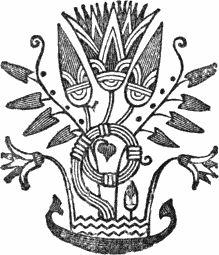Transcriber's Note:
Every effort has been made to replicate this text as faithfully aspossible, including inconsistent hyphenation. Some changes have beenmade. They are listed at the end of the text.
Military Manners andCustoms
LONDON: PRINTED BY
SPOTTISWOODE AND CO., NEW-STREET SQUARE
AND PARLIAMENT STREET
MILITARY MANNERS
AND CUSTOMS
BY
JAMES ANSON FARRER
AUTHOR OF
‘PRIMITIVE MANNERS AND CUSTOMS’ ‘CRIMES AND PUNISHMENTS’ ETC.

‘Homo homini res sacra’—Seneca
London
CHATTO & WINDUS, PICCADILLY
1885
[The right of translation is reserved.]
PREFACE.
In the present volume I have attempted within thelimits of the historical period and of our Europeancivilisation, and without recognising any hard andfast line between ancient and modern, Christian andPagan, to allude, in the places that seemed mostappropriate, to all points in the history of war thatappeared to be either of special interest or of essentialimportance. As examples of such points I may referto the treatment of prisoners of war, or of surrenderedgarrisons; the rules about spies and surprises; the introductionof, and feeling about, new weapons; themeaning of parts of military dress; the origin ofpeculiar customs like the old one of kissing the earthbefore a charge; the prevalent rules of honour, as displayedin notions of justice in regard to reprisals, or offairness in stratagems and deception. The necessityof observing in so vast a field the laws of proportionhas enforced resort to such condensation, that onsubjects which deserve or possess their tomes upontomes, I have in many cases been unable to spendmore than a page or a chapter. It is easier, how[Pg vi]ever,to err on the side of length than of brevity, buton whichever side I have exceeded, I can only hopethat others, who may feel the same interest withmyself in the subject without having the same time togive to it, may derive a tithe of the pleasure fromreading the following nine chapters that I have foundin putting them together.
The study, of course, is no new one, but there canbe no objection to calling it by the new name ofBellology—a convenient term, quite capable of holdingits own with Sociology or its congeners. Theonly novelty I have aimed at is one of treatment, andconsists in never losing sight of the fact that to allmilitary customs there is a moral and human sidewhich has been only too generally ignored in thisconnection. To read books like Grose’s ‘MilitaryAntiquities,’ one would think their writers weredealing with the manners, not of men but of ninepins,so utterly do they divest themselves of all humaninterest or moral feeling, in reference to the customsthey describe with so laudable but toneless anaccuracy.
The starting-point of modern bellological studieswill, undoubtedly, always be the Parliamentary BlueBook, containing the reports (less full than one mightwish) of the Military International Conference thatmet at Brussels in 1874, to discuss the existing lawsand customs of war, and to cons